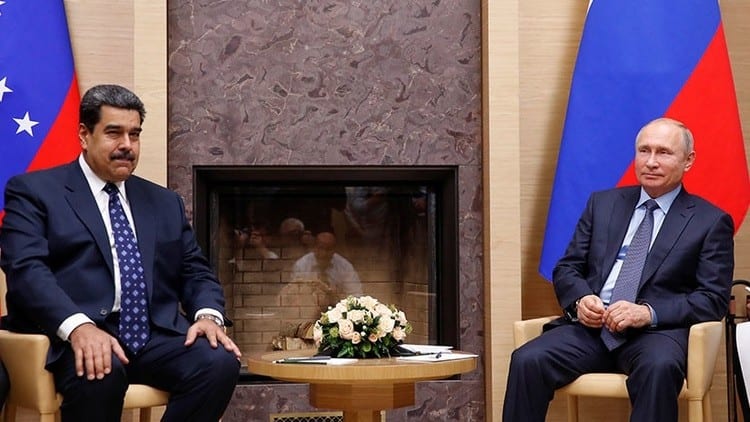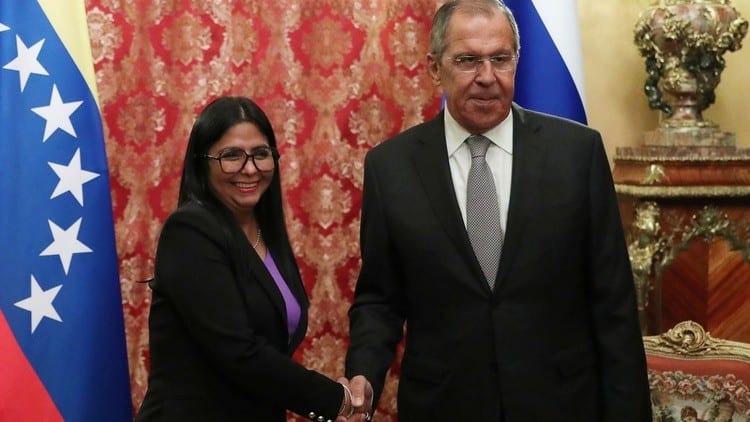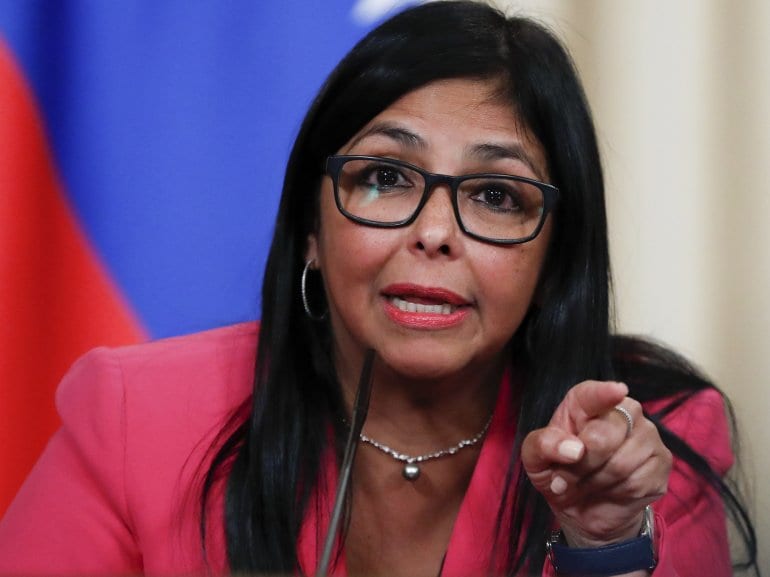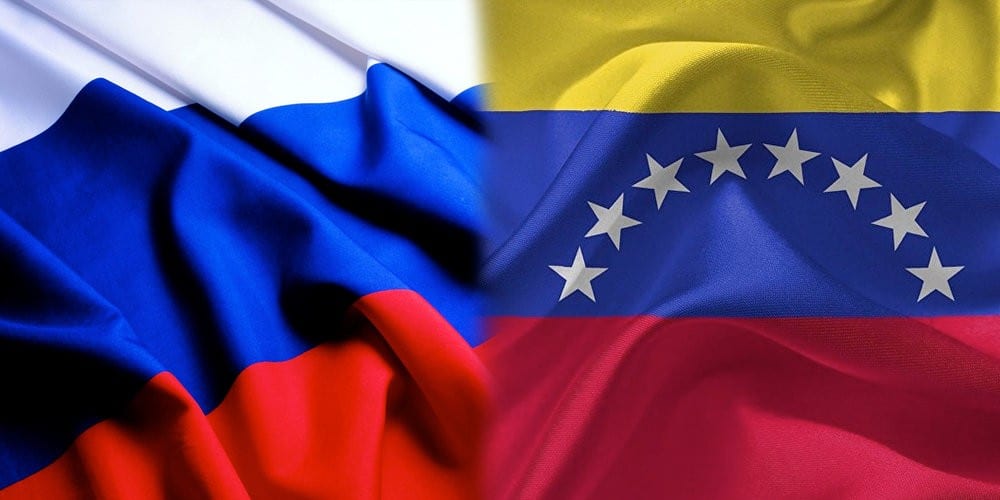On August 21, Moscow hosted negotiations between the Russian Foreign Minister Serguéi Lavrov and the Venezuelan Executive Vice President Delcy Rodriguez. The main topics of the agenda were the implementation of large-scale joint projects in the field of economics, science, advanced technologies and culture, as well as the internal political situation in the Bolivarian Republic. How will Russian-Venezuelan relations develop in the near future? What ties unite Moscow and Caracas?
Over the long term, Russian-Venezuelan relations have established themselves as an example of a stable and mutually beneficial alliance characterized by a coincidence of views on the main issues of a multipolar world order, a bilateral desire to build up the “matter” of trade, economic, cultural and humanitarian ties, as well as a fundamental legal base (over 200 different documents). Venezuela became the first country in the Latin American region, whose independence was recognized by Russia on February 17, 1857. Diplomatic relations between the USSR and Venezuela were established on March 14, 1945. By a decision of the Soviet government on June 13, 1952, the ties were interrupted due to the lack of conditions in Venezuela for the full-fledged activity of representatives of the USSR. However, on April 16, 1970, diplomatic relations were restored at the embassy level.
A new stage in the bilateral relations of Moscow and Caracas began in 2000 with the first meeting of the President of the Russian Federation Vladimir Putin and the head of state of Venezuela Hugo Chavez (Spanish – Hugo Rafael Chávez Frías) on the sidelines of the 55th session of the UN General Assembly in New York. The well-known regional leader, Commander Chavez, visited Russia several times: on official visits in May 2001, November 2004, October 2010, and for working meetings in October 2001, July 2006, June 2007, July and September 2008, and also in September 2009.
Important events at the present stage of development of Russian-Venezuelan relations were the first ever visit of the Russian leader to Venezuela (November 26-27, 2008) and a working trip to Caracas by the Chairman of the Government of the Russian Federation (April 2, 2010). Both visits gave new impetus to the strategic partnership of Russia with the Latin American state in the political, trade and economic, energy, and financial, scientific, technical, military and other fields. During this period, the two sides made a tangible contribution “to the piggy bank” of the legal framework, in the framework of which more than 40 agreements on cooperation in the above-mentioned areas were signed, including in the fields of culture, higher education, sports, etc.

Venezuela during the tenure of Nicolas Maduro (Spanish – Nicolás Maduro Moros) as president also concluded a number of agreements with some countries (including Russia) that have advanced technologies for refining heavy Venezuelan oil, which led to a significant increase in the competitiveness of the Venezuelan hydrocarbon compared to expensive US shale oil. Russian-Venezuelan relations did not always develop in a single line, for example, the supply of non-primary goods from Russia to the Latin American state is still developing unevenly. Nevertheless, the overall dynamics of Russian investment has always been positive over the entire period in which the United Socialist Party of Venezuela has been in power (that is, over the past 20 years). Over the course of several years, direct intergovernmental loans worth up to $ 60 billion should be added to $ 17 billion in investments in the form of direct deliveries of technology and loans. According to statements, the Venezuelan government in the Latin American country received a direct government loan from Russia as a tool for restructuring loans previously concluded, such a measure is regarded as direct financial support to the Venezuelan government in the current conditions.
The largest number of Russian investments was directed to the oil industry of Venezuela, as well as to the construction of a number of defense enterprises. Russia also provides direct assistance in the reorganization of the Venezuelan armed forces. Kremlin support is also significant in the financial sector of the Bolivarian Republic. The efforts of the Ministry of Finance of Russia provide large-scale consulting support in the framework of a major financial reform (the introduction of cryptocurrency at the state level under the name “petro”).

During the visit of Venezuelan Executive Vice President Delcy Rodriguez (Spanish – Delcy Eloína Rodríguez Gómez) to Moscow on August 21, the partners outlined practical steps to build up the Russian-Venezuelan strategic partnership, and also confirmed their readiness to continue joint work on projects in the field of economics, science, advanced technology and culture, military-technical cooperation.
The key topic of the negotiations was the current situation in Venezuela. Serguéi Lavrov emphasized that the Russian side expressed solidarity with the friendly people and government of this country, as well as firm support for the course without destructive interference in resolving the situation. Lavrov and Rodriguez noted the importance of finding political solutions to internal disagreements in the Latin American state on the basis of a nationwide dialogue and exclusively within the framework of the constitutional field. Moscow considers the path of blackmail and pressure unacceptable and will support Caracas in countering these methods, in upholding the norms and principles of international law.
The Venezuelan delegation that arrived in the country together with Delcy Rodriguez included the Minister of Economy and Finance Simon Zerpa (Spanish – Simón Zerpa Delgado), the Deputy Foreign Minister Yvan Gil (Spanish – Yván Gil) and the Central Bank Deputy Chairman Sohail Hernandez (Spanish. – Sohail Hernández Parra). As part of the visit, on August 19, Rodriguez met with the Deputy Chairman of the Russian Government Yuri Borisov, and issues on the bilateral economic agenda were discussed.

This visit of the representatives of the Venezuelan government to Moscow again demonstrated the intention of the two sides to strengthen the strategic alliance in successfully developing areas. Russian-Venezuelan relations have a long positive history and can be beneficial for both countries, provided that the Kremlin maintains a course towards the progressive development of the entire complex of bilateral ties, despite opposition from visible and invisible competitors in the international arena.
In turn, the success of the Russian geopolitical presence in Latin America as a whole, will depend on the determination to continue its course towards maintaining at the current stable level of bilateral relations around the entire perimeter of the region. As for Venezuela, the main capital of Russia, which it has in this country, is not the volume of investments, but the unshakable and consistent maintenance of successful ties in a number of areas, which is a “showcase” and, for many states, an example of stability in approaches to bilateral cooperation.


